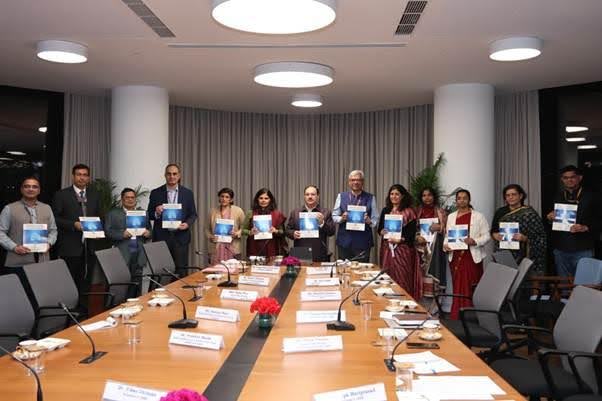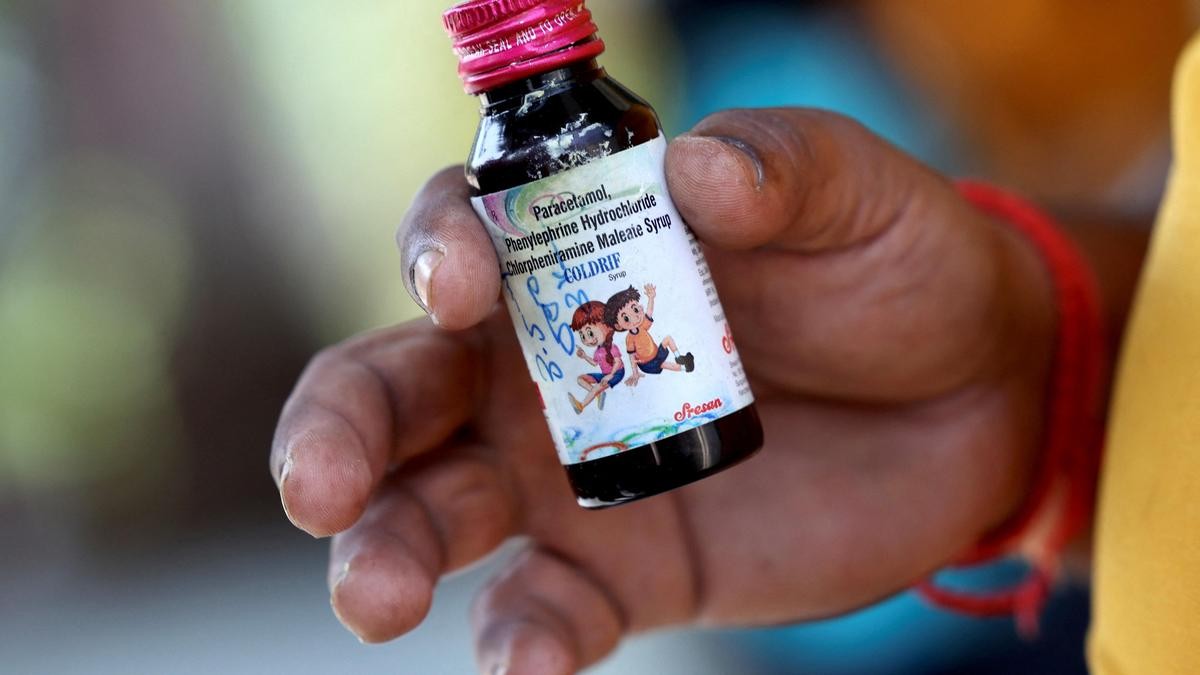Description

Disclaimer: Copyright infringement not intended.
Context
- The Ministry of Health pulled up at least twenty companies including Tata-1mg, Flipkart, Apollo, PharmEasy, Amazon and Reliance Netmeds, by issuing them a show cause notice, for selling medicines online.
- This happened after the All India Organisation of Chemists and Druggists (AIOCD), a powerful lobby of over 12 lakh pharmacists, threatened to launch a country-wide agitation if the government didn’t act.
Online Sale of Drugs
- The acute need for door-step delivery of drugs was felt during COVID-19.
- The year 2020 marked a watershed moment for the growth of e-pharmacies as the Ministry of Home Affairs issued orders for them to continue to operate. It saw nearly 8.8 million households using home delivery services during lockdown.
.jpeg)
Associated concerns
- The Centre is of the view that online sale of drugs without a doctor's prescription or even otherwise, poses threats to the public health including drug abuse, especially among youth. Many instances of drug abuse, especially among youth have surfaced lately.
- It's a great risk to national security as well as the online data can be misused for criminal activities by promoting addictive medicines.
- The government has been receiving various representations raising concerns regarding sale of drugs via online platforms in contravention to the Drugs and Cosmetics Act, 1940 & rules there under.
- Some drugs are also being sold online which are only allowed for sale by retail under a valid prescription of a registered medical practitioner and supplied under the supervision of a pharmacist.
- Not just adults, children too use the internet, and this may cause severe health hazards in case we don’t put a ban on online sales.
Response from the end of Government and Judiciary
Draft e-Pharmacy Rules
- The draft e-pharmacy rules, which were originally intended to whip e-pharmacy businesses into shape were floated by the Ministry of Health in 2018.
- The rules were finalised, public comments were taken into consideration and they were almost on the brink of being notified.
- But the proposal was abruptly shoved into cold storage, after being referred to a Group of Ministers as the matter was considered ‘sensitive,’.
Orders from various Courts
- The Delhi High Court in 2018 had ordered a ban of online sale of drugs across the country. There are cases in various courts in this regard requesting to prohibit the online sale of drugs.
- Multiple court orders including those from Bombay, Madras, Delhi and Patna High Court have called for regulating e-pharmacies.
172nd Parliamentary Standing Committee
- The Report found it ‘appalling,’ that e-pharmacy rules had not been notified even after four years of the draft being introduced.
Show Cause Notice from Health Ministry
- Recently, Health ministry issued show cause notices to more than a dozen of companies including biggies like Amazon, Flipkart, Practo, Tata1mg, PharmEasy, Apollo, Zeelabs and Healthcart etc for selling drugs online without necessary licences.

Is a blanket ban on e-pharmacies a viable option?
- Banning e-pharmacies would be like throwing the baby out with the bath water.
- The demand for online delivery of drugs is burgeoning. There is a possibility that some of these businesses will go underground if banned, because people are not going to stop ordering medicines online anytime soon.
- One can’t wish away the sale of drugs online by threatening to ban businesses, instead of regulating the sector.
Closing Remarks
- In the past eight years, the market penetration of e-pharmacies has seen a growth from 3% to 5%. It is an important option for consumers for buying chronic care medicines for diabetes, high blood pressure, cardiac issues, and so on.
- Hence, an outright ban on heaving e-pharmacies to the hellbox must be avoided. It goes against the government’s intent of building digital infrastructure as a key pillar driving India’s long-term growth strategy.
- Moreover, the potential of India’s over $344 million e-pharmacy market is promising. It’s expected to grow at an enviable 40–45%, all because of the surging internet connectivity, mobile phone penetration, government initiatives and rising investments.
- While regulating drugs and medicines is crucial to public health and safety, the efficient and legitimate functioning of e-pharmacies can be ensured with comprehensive norms.
- It’s the lack of unambiguous laws regulating, controlling and monitoring online players that can lead to an adverse effect on the health of the nation.
|
PRACTICE QUESTION
Q) What are the concerns associated with the e-pharmacy Industry in India? Give suggestions to overcome those issues.
|













